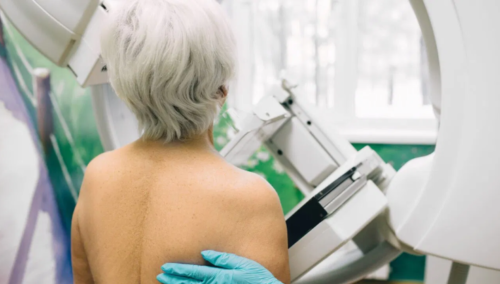

1.cancer (n)
a serious disease that is caused when cells in the body grow in a way that is uncontrolled and not normal, killing normal cells and often causing death
2. colorectal (adj)
relating to the colon (= the large bowel) and the
(= rectum) (= the last section of the large bowel)
3. cervical (adj)
relating to the cervix (= the narrow, lower part of the uterus)
4. screening(n)
a test or examination to discover if there is anything wrong with someone:
5. hypothesized(v)
to give a possible but not yet proved explanation for something:
Are Older Adults Getting Too Many Cancer Screenings?

Older adults may be undergoing cancer screenings beyond the age recommended by the U.S. Preventive Services Task Force.
In a new study Trusted Source, researchers from Penn State University have concluded that more than 45 percent of older adults in the United States underwent screening for colorectal, cervical, or breast cancer beyond the recommended age of 75 for colorectal cancer, 65 for cervical cancer, and 74 for breast cancer.
“We hypothesized that people who are older or who have lower life expectancies would be less likely to report having received their cancer screenings recently, but we didn’t see strong evidence of this,” Jennifer Moss, PhD, an assistant professor of family and community medicine and public health sciences at Penn State and author of the study, said in a press release. “This pattern shows us that too many people are getting screened after a point when the screening is probably not going to provide benefit and may cause harm.”
“There are two reasons why people should stop screening for cancer,” Moss added. “First, when they ‘age out’ of the recommended screening age, or second, when their life expectancy is too low. As with any clinical procedure, there are risks from the cancer screening tests. These risks are even higher for people who have aged-out or who have a low life expectancy.”
Moss and colleagues used data from the Centers for Disease Control and Prevention’s (CDC) Behavioral Risk Factor Surveillance System, which collects information about health behaviors, such as screening for cancer.
The researchers analyzed data from more than 20,000 men and 34,000 women screened for colorectal cancer, as well as more than 82,000 women for cervical cancer and more than 38,000 women for breast cancer.
They found that 59 percent of men and 56 percent of women were over-screened for colorectal cancer. In addition, 45 percent of women were over-screened for cervical cancer and 73 percent of women were over-screened for breast cancer.
Resource: https://www.healthline.com/health-news/

- What are the common types of cancer being experienced in your country?
- Does your country have a good medical facility to treat cancer patients?
“We must embrace pain and burn it as fuel for our journey.”
Kenji Miyazawa
“Cancer opens many doors. One of the most important is your heart.”
Greg Anderson

 Advanced
Advanced

